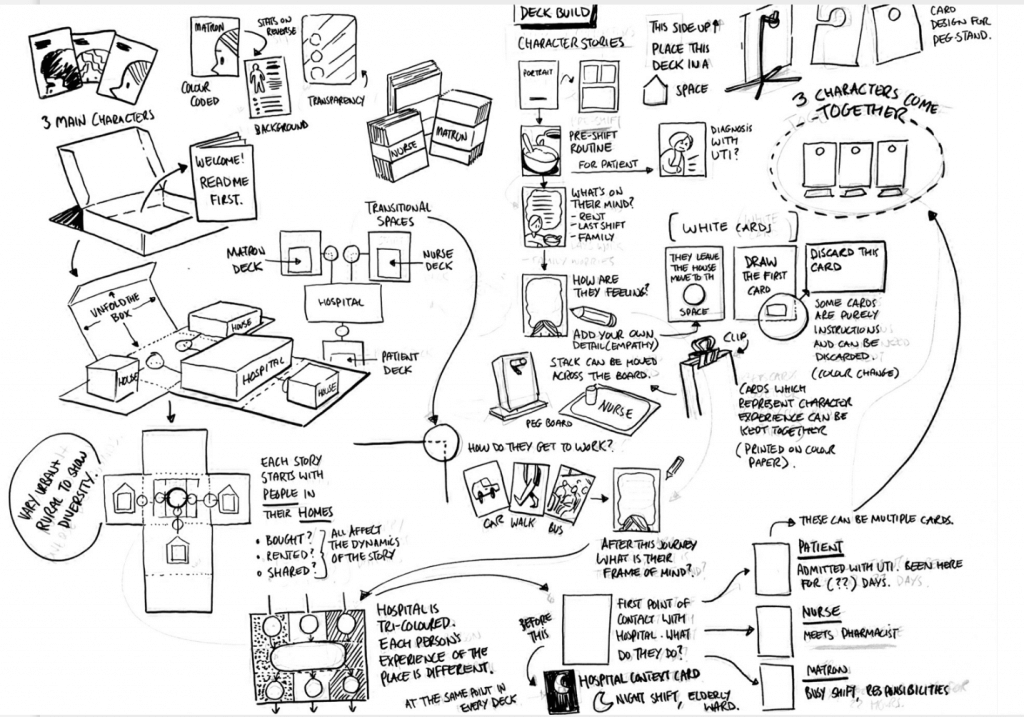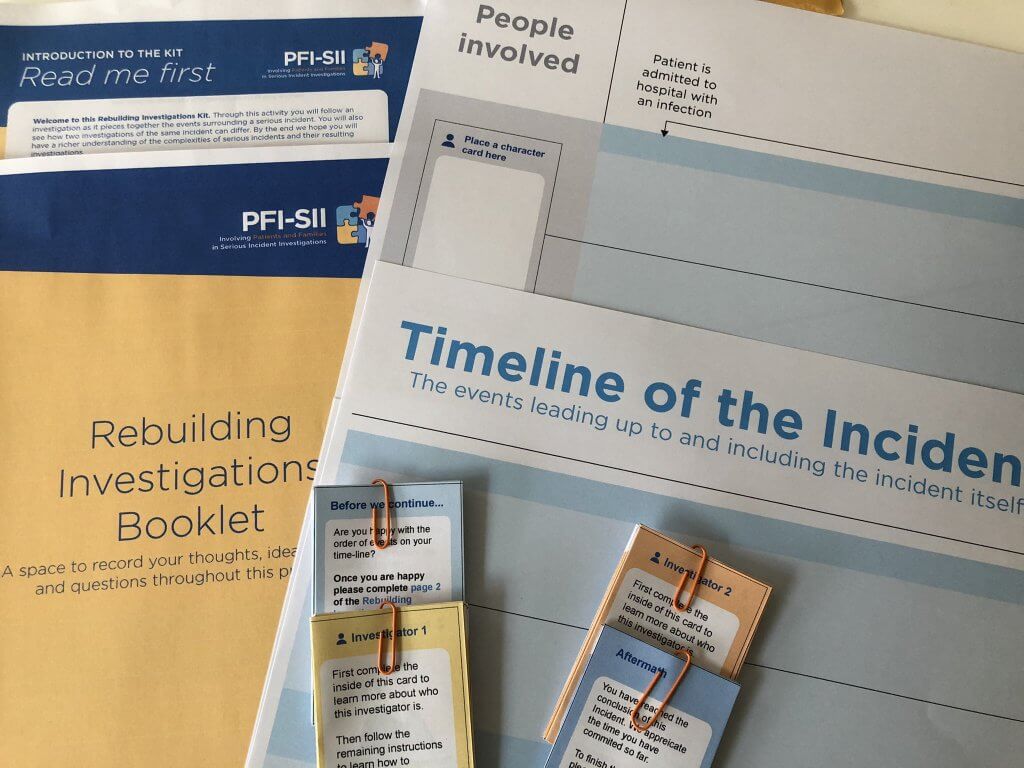The aim of this research was to co-design processes and resources to guide the role of patients and families in serious incident investigations at a national and local level. It will test these processes to understand their impact upon experience, learning and the likelihood of seeking legal recourse. Our role in this research is to lead the co-design work.
Partners: University of Leeds, University of Birmingham, University of Oxford, Bradford Institute for Health Research, Bradford Teaching Hospitals NHS Foundation Trust, Bradford District Care NHS Foundation Trust, York and Leeds Partnership NHS Foundation Trust, York Teaching Hospitals NHS Foundation Trust, Healthcare Safety Investigation Branch
Team: Joe Langley, Rebecca Partridge, Chris Redford, Paul Emmerson
Background
Reported serious incidents (severe harm or death) are estimated to be 10,000 each year in the UK, with enormous, ever increasing costs associated with litigation. We need to improve the process of learning from serious incidents in order to prevent them reoccurring, and reduce the financial burden of litigation.
The reasons claims are pursued are complex and we hope this work will help to make them clearer. One reason we do know is that patients and families often do not get a satisfactory explanation to their incident and will end up pursuing legal channels in their efforts to simply ‘force’ some transparency, get an explanation and some resolution.
NHS Resolution believe that involving patients and families earlier in investigations will reduce the costs of administering claims, and divert claims pursued for explanation. Other policy and regulatory organisations have proposed greater involvement of patients and families in serious incident investigations, to support better learning.
However, there is currently no UK-based evidence to guide organisations to involve patients and families meaningfully in serious incident investigations, to support learning, or reduce the likelihood of litigation.
Methods
There are three phases to this research: Background research, co-design and testing. Lab4Living led the second phase.
The background research included a documentation analysis, literature review and interviews. The documentation analysis looked at published policies within England to see how NHS Trusts involved patients and families in serious incident investigations and decisions to litigate. Interviews with families, investigators and healthcare staff explored individual experiences. These three sources of date then formed the basis of a number of program theories to support the co-design.
The co-design element of the research brought together patients and families with direct experience, staff who had been investigated, staff who were involved in investigations, staff at managerial levels, policy makers and researchers. Three parallel co-design processes were facilitated involving patients and families in serious incident investigations within a) national (Healthcare Safety Investigation Branch) b) mental health c) acute care.

Finally, the testing phase of the project comprised of:
- Implementation of the prototype guidance and resources in 25 investigations across 5 organisations
- a focused ethnography to assess feasibility, and
- exploration of stakeholder experiences, impact on learning, recommendations, actions, and decisions to litigate.
COVID Adaptation
To accommodate the constraints of social distancing during the pandemic, face-to-face workshops were ruled out; the design team has been exploring other methods of engagement (see Co-design During COVID). Face-to-face workshops have been replaced by screen-to-screen workshop events. However, we appreciate the limitations that these places on some people due to digital access, time and creativity. We therefore also implemented a structure around these events to support people to ‘see’ and contribute to the co-design process in other ways.
A shared digital design canvas became the central repository and documentary record. This was shared with all co-design partners. We provided training where requested to enable some to use the space themselves. We shared printed versions of the canvas by post with others and invited their input through analogue forms. Alongside this, we developed a variety of co-design kits that were posted to all co-design partners. These included a ‘Handshake’ kit and an ‘Investigate the Investigation’ kit loosely based on the notion of re-building a story of an investigation from multiple perspectives.
Progress to Date
The “Rebuilding Serious Investigations kit” was one key COVID co-design adaptation, sent to co-design partners homes before the co-design. It built empathy for different co-designer perspectives and communicated complex research findings. It was a fictional, interactive story based on the research evidence.
Participants re-constructed an incident narrative for different character perspectives then made choices about the investigation, generating different outcomes. They reflected on what this meant about the ways investigations were being conducted.
Outputs are on a website explaining the new investigation process with guidance via downloadable documentation, online video explanations and signposts to wider resources. It has been embedded in NHS England Patient Safety Incident Response Framework (PSIRF), and Framework for Involving Patients in Patient Safety.

 to top
to top
